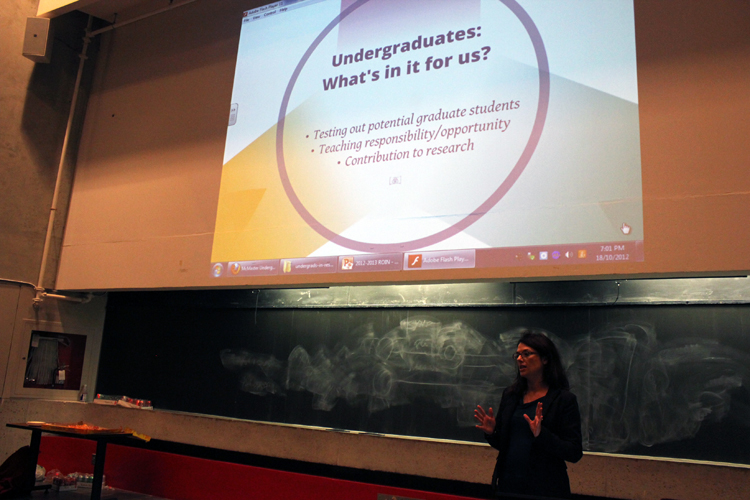Dr Bowdish’s solo storytelling/scicom presentation recives a 5N review from Next Magazine! Read the full review here: https://nextmag.ca/fringe-review-the-perils-of-being-born-in-the-fall-provides-laughter-tears-and-scientific-history/



Dr Bowdish’s solo storytelling/scicom presentation recives a 5N review from Next Magazine! Read the full review here: https://nextmag.ca/fringe-review-the-perils-of-being-born-in-the-fall-provides-laughter-tears-and-scientific-history/

Born in September? This professor has got bad news for you. Spend an hour of edu-tainment touring through the wackiness of early 19th century psychiatry, stealth mid-century reproductive rights activism, the climate/pregnancy connection, and learn why cold & flu season has an outsize impact on mental health. Didn’t think science could be funny? Come check out the only show in this year’s Fringe put on by a PhD scientist – you might laugh, but you’ll definitely learn. Tickets are “Pay What You Can” and available for as little as $4! Suitable for ages 13+ (PG). Content warning: brief mention of suicidality, mentions of mental health, abortion and reproductive sex.
Show times are:
2nd July 5:00pm
4th July 8:15pm
5th July 1:00pm
7th July 4:45pm
8th July 2:30pm
10th July 4:15pm
12th July 10:15pm
Helen Gardiner Phelan Playhouse
79 St George St, Toronto, ON M5S 3L8
For details and tickets: https://fringetoronto.com/fringe/show/perils-being-born-fall
Dr. Bowdish explains what cooties are, how the microbes that live on and in us can be friends and foes and describes how differences in infections and health between boys and girls, men and women are sometimes due to biology and sometimes due to behaviour.
Read the article summarizing the event here.
To see Dr. Bowdish put on a macrophage cape and teach the school kids the difference between a commensal, a pathobiont and a pathogen by dressing up their teachers, watch here…..
Dawn was delighted to be invited to speak at an information night organized by the McMaster Undergraduate Research in Science Association (MURSA). She presented her perspectives on what she might be looking for in an undergraduate student, why PIs/Professors take on undergraduates and once an undergraduate gets a position, what they need to do to be successful. For her presentation, click here. To learn more about the MURSA see their webpage or Facebook page

Dawn presents her perspectives on why a PI might take an undergraduate researcher and what an undergraduate might do to obtain a research position and be successful in research.
.
Mike will be presenting at this week’s “Work in Progress” seminar. For details click kafka and dorrington-nov-2-11.
Dawn, a University of Guelph graduate, will be returning to her alma mater to give a talk on “Mechanisms of Immune Control of Streptococcus pneumoniae in the Upper Respiratory Tract” on Jan. 14 at 11 a.m. in OVC Pathobiology, Room 1810. For a short synopsis of our work see link to article here.
I am looking forward to presenting some recent, unpublished data at the Department of Chemical Engineering at McMaster. This will be a very different audience than usual but I suspect that there will be many overlapping interests as macrophages are involved in biopolymer and nanoparticle recognition and detrimental host responses. Below is the title & abstract of the talk.
Macrophage scavenger receptors: role in adhesion, uptake & migration.
Macrophages are tissue-resident white blood cells that are essential for detection of pathogens, clearance of modified host products and recognition of foreign bodies. Macrophages recognize both host and foreign ligands via surface expressed receptors. The result of this recognition may be a pro-inflammatory response, phagocytosis, or differentiation & adhesion. Although macrophage responses are essential for host defence and tissue homeostasis, they can also be detrimental when the macrophage is unable to clear foreign particles such as implants or environmental and synthetic particles. The scavenger receptors are macrophage receptors that have the unusual capacity of recognizing modified self proteins, pathogens and foreign particulates. We aim to determine how these receptors transmit signals to the cell and how this signaling affects macrophage adhesion, phagocytosis & endocytosis (uptake) and migration.